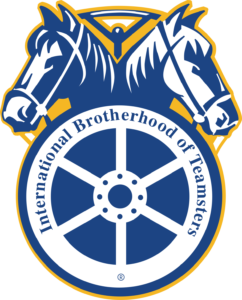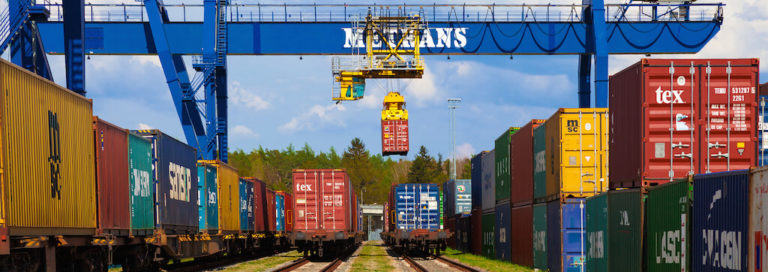The District Journal Team
ALIS and Teamsters: The Synergy of Sustainable Intermodality and Unionism Reshaping the World of Transport
The International Brotherhood of Teamsters (IBT), widely known as the Teamsters, is a highly significant American trade union, founded as far back as 1903. This union, with a dominant presence, primarily represents workers operating in the transport and logistics sector. With an impressive membership of over a million, the Teamsters have established themselves over the past century as a bulwark in the fight for workers’ rights, achieving better working conditions, fairer wages, and increased job security for their members.

On the other side of the Atlantic, we find an organization that is redefining the rules of the game in the transport and logistics sector: ALIS. An acronym for “Associazione Logistica dell’Intermodalità Sostenibile” (Logistics Association of Sustainable Intermodality), ALIS is a European organization established in 2016 with the intent to represent transport and logistics companies. But ALIS is not just about representation: it stands out for its active commitment to promoting sustainability through intermodal solutions. These solutions are designed to combine various modes of transport in an integrated approach aimed at optimizing efficiency and reducing environmental impact.

Though geographically and culturally distant, the Teamsters and ALIS have shown that cooperation between different worlds can lead to extraordinary results. The Teamsters have always demonstrated a predisposition for innovation, successfully adapting to the industrial and technological changes that have characterized the last century. On the other hand, ALIS has been successfully involving various stakeholders in the industry, promoting intermodality and sustainable practices to tackle the environmental and digital challenges of our time.
ALIS represents a radical evolution of what the Teamsters have been over the past century. Becoming a symbol of sustainability and technology, ALIS shows that different realities can find common ground and work towards a shared goal. In the context of increasingly pushed technological innovation, ALIS looks to the future of technology to further optimize the logistics sector. An example of this forward-thinking approach is ALIS’s willingness to experiment with and adopt blockchain-based solutions – just think of www.chainlog.it, to name one.
The adoption of blockchain by ALIS further strengthens the link between technological innovation and environmental sustainability, creating a perfect marriage between the two. The combination of intermodal, sustainable, and digital solutions such as blockchain allows ALIS to stay at the forefront of the logistics sector, contributing to reshaping the future of the industry.
In conclusion, the experience of ALIS and the Teamsters demonstrates how the union of different cultures, the pursuit of sustainability, and the adoption of innovative technologies can lead to significant changes in the logistics sector. This is a powerful signal of how the convergence of ideas, people, and technologies can accelerate the transition towards a more sustainable and inclusive future for all. A future where the logistics sector is not just more efficient, but also more respectful of the environment and the people who work in it.

Food for thought
Digital Transformation
Reflecting deeply on the article, it becomes apparent how digital transformation is profoundly and incisively reshaping sectors of vital importance, such as healthcare. Italy’s journey towards the digitization of Electronic Health Records (EHRs) is a perfect example of this change, a sort of litmus test indicating the potential future of global health services.
The EHR, a digital archive containing all of a patient’s health information, is a central pillar of the digital healthcare revolution. The benefits derived from its implementation are numerous, but it’s important to consider the unique challenges it presents, such as data security and patient privacy. This is where blockchain technology comes into play. Originally designed for cryptographic transactions, blockchain proves to be an extremely promising solution to confront and overcome these challenges. The application of blockchain in EHR management represents a genuine leap forward in ensuring data integrity, security, and transparency. But the article invites us to reflect not only on technological changes. Italy’s progress in the field of digital health is not only about technology, but also about people – the patients, the healthcare professionals, society as a whole. As we proceed towards increasingly digital health systems, it becomes crucial to ensure this transition is inclusive and leaves no one behind.
